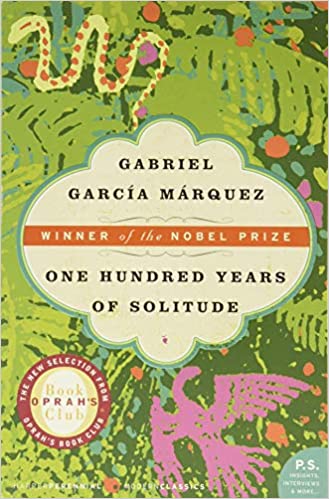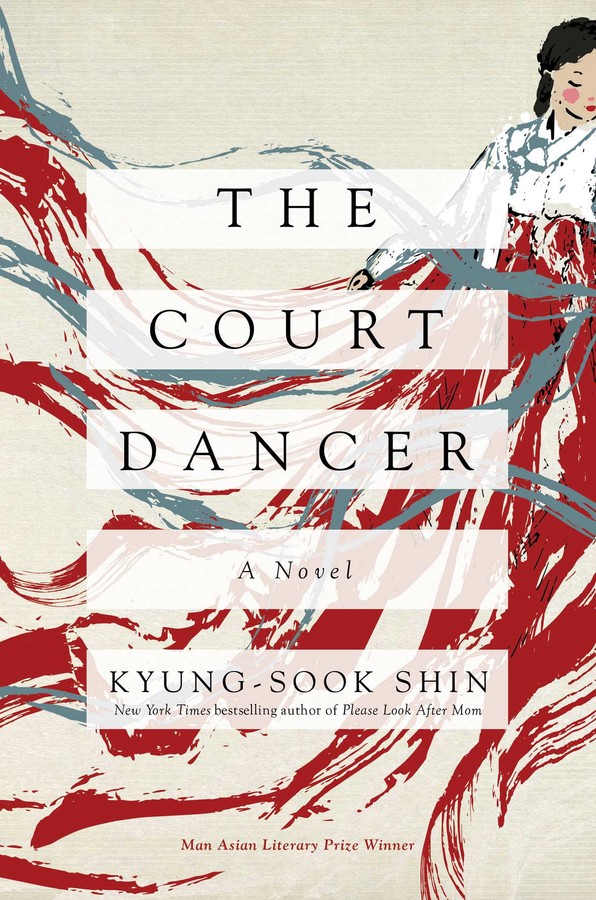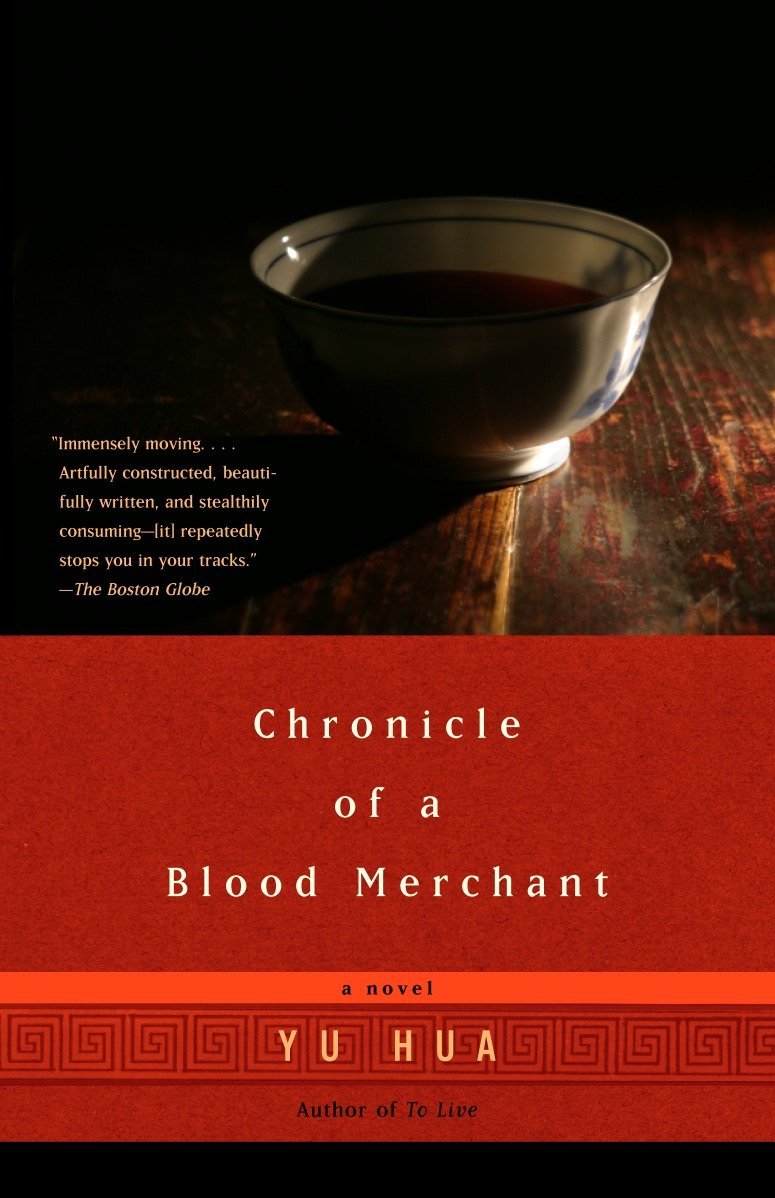China’s National People’s Congress has recently released a translation of the Civil Code, which includes several intellectual property (IP) law related articles. Some of IP-related articles cover punitive damages for intellectual property infringement (Article 1185), the right of publicity (Articles 989 – 1001), and technology development and transfer (Articles 843 – 887). The IP-related articles are reproduced below for public record and ease of search. The full text in English is available here: Civil Code. The original Chinese text is available here. The Civil Code is effective as of January 1, 2021.

Article 123
A person of the civil law enjoys intellectual property rights in accordance with law. Intellectual property rights are the exclusive rights enjoyed by the right holders in accordance with law over the following subject matters:
(1) works;
(2) inventions, new utility models, or appearance designs;
(3) trademarks;
(4) geographical indications;
(5) trade secrets;
(6) layout designs of integrated circuits;
(7) new plant varieties; and
(8) the other subject matters as provided by law.
Article 440
The following rights, which a debtor or a third person is entitled to dispose of, may be pledged:
(1) bills of exchange, promissory notes, and checks;
(2) bonds and certificates of deposits;
(3) warehouse receipts and bills of lading;
(4) transferable fund shares and equity;
(5) transferable proprietary rights consisted in intellectual property such as the right to the exclusive use of registered trademarks, patent rights, and copyrights;
(6) existing and after-acquired accounts receivables; and
(7) any other proprietary right that may be pledged in accordance with the provisions of laws and administrative regulations.
Article 444
A pledge on a proprietary right in intellectual property, such as the right to the exclusive use of a registered trademark, a patent right, or copyright, is created upon registration. A proprietary right in intellectual property, after being pledged, may not be transferred or licensed by the pledgor to another person, unless otherwise agreed by the pledgor and the pledgee through consultation. The proceeds obtained by the pledgor from the transfer or licensing of the proprietary right in the pledged intellectual property shall be applied to pay to the pledgee to discharge the obligation before it is due or be placed in escrow.
Chapter XX
Technology Contracts
Section 1
General Rules
Article 843
A technology contract is a contract concluded by the parties to establish their rights and obligations for technology development, transfer, licensing, consultation, or service.
Article 844
The conclusion of a technology contract shall be conducive to the protection of intellectual property rights and the advance of science and technology, and shall promote the research and development, transformation, application, and dissemination of the achievements in science and technology.
Article 845
A technology contract generally contains clauses specifying the name of the project, the content, scope, and requirements of the object, the plan, place, and manner of performance, the confidentiality of technological information and materials, the ownership over the technological achievements and the method of proceeds distribution, the criteria and method of the inspection for acceptance, interpretation of terminologies, and the like. Materials such as technological background information, the feasibility studies and technological evaluation reports, the project task paper and plans, technology standards, technology norms, original design and technical documents, as well as other technical documents which are relevant to the performance of the contract may, as agreed by the parties, be component parts of the contract. Where a technology contract involves a patent, it shall indicate the designation of the invention, the applicant and the patentee thereof, the date of application, the application number, the patent number, and the term of the patent rights.
Article 846
The method of payment for the price, remuneration, or royalty shall be agreed by the parties in a technology contract, and the payment may be made in a lump-sum or by installment based on one-time calculation, or based on the method of commission payment or such payment plus an upfront fee. Where the parties agree to adopt a method of commission payment, the commission may be drawn at a specific percentage from the price of the product, the newly-increased output value and profits attained from the exploitation of patents and the utilization of technological know-how, or the sales revenue of the product, or be calculated by other methods as agreed by the parties. The said percentage may be a fixed percentage, or one that increases or decreases year by year. Where the parties agree to adopt commission payment, they may specify the method for examining the relevant accounting books.
Article 847
Where a right to use or transfer a work for hire belongs to a legal person or an unincorporated organization, the legal person or unincorporated organization may conclude a technology contract on the work for hire. Where the legal person or unincorporated organization concludes a technology contract to transfer the work for hire, the creator of the work for hire has a priority right to acquire it on equivalent conditions. A work for hire is a technological achievement that is accomplished as a result of
performing the tasks assigned by a legal person or unincorporated organization or that is accomplished mainly by using the materials and technological resources of the said legal person or unincorporated organization.
Article 848
The right to use or transfer a technological work product other than a work for hire belongs to its creator who may conclude a technology contract on such work product.
Article 849
An individual person who has accomplished a technological work product has the right to indicate on the relevant documents of the technological work product that he is the creator thereof, and to receive certificate of honor and rewards.
Article 850
A technology contract that illegally monopolies technologies or infringes upon other’s technological work product is void.
Section 2
Technology Development Contracts
Article 851
A technology development contract is a contract concluded by the parties concerning the research and development of a new technology, product, technique, variety, or material, as well as the system thereof. Technology development contracts consist of commissioned development contracts and cooperative development contracts. A technology development contract shall be in writing. The relevant provisions on the technology development contracts shall be applied mutatis mutandis to a contract concluded by the parties on the application and transformation of a technological product with a value for practical use.
Article 852
A client of a commissioned development contract shall pay for the research and development fees and the remunerations in accordance with the agreement, provide technological materials, make proposals for research and development, complete his tasks in the cooperative work, and accept the work product of the research and development.
Article 853
A researcher-developer of a commissioned development contract shall work out and implement a research and development plan in accordance with the contract, make reasonable use of the research and development funds, complete the research and development work as scheduled, deliver the work product of research and development, provide relevant technological materials and necessary technological guidance so as to help the client comprehend the work product of the research and development.
Article 854
Where a party to a commissioned development contract defaults, thus causing the stoppage, delay, or failure of the research and development work, the party shall bear default liability.
Article 855
The parties to a cooperative development contract shall make investments in a form agreed by the parties, including contribution of the technology in investment, participation in the research and development work by performing their respective duties, and cooperation in the research and development.
Article 856
Where a party to a cooperative development contract defaults, thus causing the stoppage, delay, or failure of the research and development work, the party shall bear default liability.
Article 857
Where a technology which is the object of a technology development contract is revealed to the public by others, thus rendering the performance of the contract meaningless, the parties may rescind the contract.
Article 858
The parties to a technology development contract shall agree on the allocation of risks of insurmountable technological difficulties arising in the performance of the contract which causes total or partial failure of the research and development. Where there is no such an agreement between the parties or the relevant agreement is unclear, if it cannot be determined according to the provisions of Article 510 of this Code, the parties shall share the risks in a reasonable way. Where a party finds that a situation specified in the preceding paragraph exists which may cause total or partial failure of the research and development, the party shall promptly notify the other party and take appropriate measures to mitigate the loss. Where the party fails to promptly inform the other party and take appropriate measures so that the loss is aggravated, it shall be liable for the aggravated part of the loss.
Article 859
Where an invention is accomplished through commissioned development, the right to apply for patent on the invention belongs to the researcher-developer, unless otherwise provided by law or agreed by the parties. Where the researcher-developer has obtained the patent right, the client may exploit the patent in accordance with law. Where a researcher-developer is to transfer his patent application right, the client has a priority right to acquire the right on equivalent conditions.
Article 860
Where an invention is accomplished through cooperative development, the right to apply for patent thereon jointly belongs to all parties to the cooperative development. Where one party is to transfer the part of the joint patent application right he owns, the other party or parties shall have a priority right to acquire the right on equivalent conditions, unless otherwise agreed by the parties. Where a party to a cooperative development waives the part of patent application right he owns, unless otherwise agreed by the parties, the other party may make the application, or the other parties may jointly make the application, as the case may be. Where an applicant acquires the patent right, the party who has waived the right to application of the patent may exploit the patent free of charge. Where one party to a cooperative development does not agree to apply for patent, the other party or parties may not file such an application.
Article 861
The right to use and the right to transfer a work product containing technological know-how accomplished through commissioned development or cooperative development, as well as the method for distributing the proceeds thereof, shall be agreed by the parties. Where there is no such an agreement between the parties or the relevant agreement is unclear, if it cannot be determined according to the provisions of Article 510 of this Code, all the parties have the right to use and transfer the said work product, as long as no patent right has been granted on a same technological solution. Provided, however, that a researcher-developer of a commissioned development may not transfer the work product to a third person before he delivers it to the client.
Section 3
Technology Transfer Contracts and Technology Licensing Contracts
Article 862
A technology transfer contract is a contract under which a lawful right holder of a technology assigns to another person the relevant rights in respect of a specific patent, application for a patent, or technological know-how. A technology licensing contract is a contract under which a lawful right holder of a technology authorizes another person to exercise the relevant rights to apply and exploit a specific patent or technological know-how. The agreement in a technology transfer contract or a technology licensing contract on the provision of special equipment and raw materials for application of the technology or on the provision of the relevant technology consultation and technology service is a component part of the contract.
Article 863
Technology transfer contracts include the contracts for the transfer of patent right, the contracts for transfer of the patent application right, the contracts for transfer of technological know-how, and the like. Technology licensing contracts include the patent exploitation licensing contracts, technological know-how licensing contracts, and the like. Technology transfer contracts and technology licensing contracts shall be in
writing.
Article 864
A technology transfer contract or a technology licensing contract may specify the scope to exploit the patent or to use the technological know-how, but may not restrict competition or development of the technologies.
Article 865
A patent exploitation licensing contract is valid only within the period during which the patent is valid. Where the term of the patent right expires or the patent right is declared invalid, the patentee may not conclude a patent exploitation licensing contract relating to the said patent with another person.
Article 866
A licensor under a patent exploitation licensing contract shall permit the licensee to exploit the patent, deliver the technological materials related to the patent exploitation, and provide necessary technological guidance in accordance with the agreement.
Article 867
A licensee under a patent exploitation licensing contract shall exploit the patent in accordance with the agreement, may not allow a third person outside the contract to exploit the patent, and shall pay the agreed royalties.
Article 868
A transferor under a technological know-how transfer contract or a licensor under a technological know-how licensing contract shall, in accordance with the agreement, provide technological materials, give technological guidance, guarantee the practical applicability and reliability of the technology, and perform confidentiality obligations. The confidentiality obligations provided in the preceding paragraph may not restrict the licensor’s ability to file an application for a patent, unless otherwise agreed
by the parties.
Article 869
A transferee under a technological know-how transfer contract or a licensee under a technological know-how licensing contract shall, in accordance with the agreement, exploit the technology, pay the transfer fee and royalties, and perform the confidentiality obligations.
Article 870
A transferor under a technological transfer contract or a licensor under a technological know-how licensing contract shall guarantee that he is the lawful owner of the technology provided therein, and guarantee that the technology provided is complete, errorless, effective, and capable of achieving the goal as agreed by the parties.
Article 871
A transferee under a technology transfer contract or a licensee under a technological know-how licensing contract shall, in accordance with the scope and time limit agreed by the parties, perform the confidentiality obligation regarding the part of the technology provided by the transferor or licensor that have not been disclosed to the public.
Article 872
A licensor who fails to license the technology in accordance with the agreement shall refund the royalties in part or in full and bear default liability. A licensor who exploits a patent or technological know-how beyond the agreed scope, or, without authorization, allows a third person to exploit the patent or utilize the technological know-how in breach of the agreement shall stop his breaching act and bear default liability. A licensor who breaches the agreed confidentiality obligation shall bear default liability. Where a transferor is liable for breach of contract, the provisions of the preceding paragraph shall be applied mutatis mutandis.
Article 873
A licensee who fails to pay royalties in accordance with the agreement shall make up for the payment and pay the liquidated damages according to the agreement. A licensee who fails to make up for the payment of royalties and pay the liquidated damages shall stop exploitation of the patent or utilization of the technological know-how, return the technological materials, and bear default liability. A licensee who exploits the patent or utilizes the technological know-how beyond the agreed scope, or, without authorization of the licensor, allows a third person to exploit the patent or to utilize the technological know-how, shall stop the breaching act and bear default liability. The licensee who breaches the agreed confidentiality obligation shall bear default liability. The provisions of the preceding paragraph shall be applied mutatis mutandis to a transferee who shall bear default liability.
Article 874
Where exploitation of a patent or utilization of a technological know-how by the transferee or the licensee in accordance with the agreement infringes upon the lawful rights and interests of another person, the transferor or the licensor shall bear the liability, unless otherwise agreed by the parties.
Article 875
The parties may, in compliance with the principle of mutual benefit, agree in the contract the method for sharing any subsequently improved technological product obtained in exploitation of the patent or utilization of the technological know-how. Where there is no agreement on such method or the relevant agreement is unclear, if it cannot be determined according to the provisions of Article 510 of this Code, the subsequently improved technological product made by one party may not be shared by any other party.
Article 876
The relevant provisions of this Section shall be applied mutatis mutandis to the transfer and licensing of the exclusive rights to layout-designs of integrated circuits, rights to new plant varieties, computer software copyrights, and other intellectual property rights.
Article 877
Where there are laws or administrative regulations providing otherwise on contracts for technology import and export, or on contracts for patents and application of patents, the relevant provisions shall be followed.
Section 4
Technology Consultation Contracts and Technology Service Contracts
Article 878
A technology consultation contract is a contract under which one party uses technological knowledge to provide the other party with the feasibility study, technological forecast, special technological investigation, and analysis and evaluation report on a specific technological project. A technology service contract is a contract under which one party uses his technological knowledge to solve specific technological problems for the other party. Technology service contracts does not include work contracts or contracts for construction project.
Article 879
A client in a technology consultation contract shall, in accordance with the agreement, clarify the issues for consultation, provide technological background information and the related materials, accept the work product of the entrusted person, and pay remuneration.
Article 880
The entrusted person in a technology consultation contract shall complete the consultation report or resolve the issues within the agreed time limit, and the consultation report submitted shall meet the requirements as agreed by the parties.
Article 881
Where a client in a technology consultation contract fails to provide the necessary materials in accordance with the agreement thus affecting the progress and quality of the work, or if the client fails to accept the work product or delays the acceptance, he may not request refund for the paid remuneration and shall pay any unpaid remuneration. An entrusted person in a technology consultation contract who fails to submit the consultation report as scheduled or submits a report failing to meet the requirements as agreed by the parties shall bear default liability in form of reduction or waiver of its remuneration, and the like.
Where a client in a technology consultation contract makes a decision in reliance upon the entrusted person’s consultation report and advice that meet the requirements as agreed by the parties, any loss thus caused shall be borne by the client, unless otherwise agreed by the parties.
Article 882
A client in a technology service contract shall, in accordance with the agreement, provide working conditions, perform the cooperative work, accept the work product, and pay remuneration.
Article 883
An entrusted person in a technology service contract shall, in accordance with the agreement, complete the services, solve the technological issues, guarantee the quality of the work, and impart the knowledge for solving the technological problems.
Article 884
Where a client to a technology service contract fails to perform the contractual obligations or performs the obligations in a manner inconsistent with the contract, thus affecting the progress and quality of the work, or fails to accept the work product or delays the acceptance, the client may not request for refund of the paid remuneration, and shall pay any unpaid remuneration. An entrusted person in a technology service contract who fails to complete the service work in accordance with the agreement shall bear default liability in such form as waiver of remuneration, and the like.
Article 885
Unless otherwise agreed by the parties, in the course of performance of a technology consultation contract or a technology service contract, the new technological product made by the entrusted person with technological materials and working conditions provided by the client belongs to the entrusted person, and the new technological product made by the client based on the work product of the entrusted person belongs to the client.
Article 886
Where there is no agreement in a technology consultation contract or a technology service contract on the bearing of the necessary expenses for the entrusted person to carry out the normal work, or the relevant agreement is unclear, the said expenses shall be borne by the entrusted person.
Article 887
Where there are laws or administrative regulations providing otherwise on technology intermediary contracts and technology training contracts, the relevant provisions shall be followed.
Personality Rights
Chapter I
General Rules
Article 989
This Book regulates the civil-law relations arising from the enjoyment and protection of personality rights.
Article 990
Personality rights are the rights enjoyed by persons of the civil law, such as the right to life, the right to corporeal integrity, the right to health, the right to name, the right to entity name, the right to likeness, the right to reputation, the right to honor, the right to privacy, and the like. In addition to the personality rights provided in the preceding paragraph, a natural person enjoys other personality rights and interests arising from personal liberty and human dignity.
Article 991
The personality rights of persons of the civil law are protected by law and free from infringement by any organization or individual.
Article 992
Personality rights may not be waived, transferred, or inherited.
Article 993
The name, entity name, likeness, or the like of a person of the civil law may be used by others upon authorization, unless the authorization of use is not allowed by law or based on the nature of the right.
Article 994
Where the name, likeness, reputation, honor, privacy, remains, or the like of the deceased is harmed, the spouse, children, and parents of the deceased have the right to request the actor to bear civil liability in accordance with law. Where the deceased has no spouse or children, and the parents of the deceased have already died, other close relatives of the deceased have the right to request the actor to bear civil liability in accordance with law.
Article 995
A person whose personality rights are infringed upon has the right to request the actor to bear civil liability in accordance with the provisions of this Code and the other laws. Where a person exercises his right to request the actor to stop the infringement, remove the nuisance, eliminate the danger, eliminate the adverse effects, rehabilitate his reputation, or extend apologies, the provisions on limitation periods do not apply.
Article 996
Where the personality rights of a party are harmed by the other party’s breach of contract and the injured party thus suffers severe emotional distress, if the injured party elects to request the other party to bear liability based on breach of contract, his right to claim for compensation for pains and suffering is not affected.
Article 997
Where a person of the civil law has evidence to prove that an actor is committing or is about to commit an illegal act that infringes upon his personality rights, and that failure to timely stop the act will cause irreparable harm to his lawful rights and interests, the person has the right, in accordance with law, to request the people’s court to order the actor to stop the act.
Article 998
In determining the civil liability an actor is to bear for infringing upon other’s personality rights, other than the right to life, the right to corporeal integrity, or the right to health, consideration shall be given to the occupations of the actor and the injured person, the scope of impact of the act, the degree of fault, as well as the factors such as the purposes, methods, and consequences of the act.
Article 999
The name, entity name, likeness, personal information, and the like of a person of the civil law may be reasonably used by those engaged in news reporting, supervision of public opinions, or the like for public interests, except that civil liability shall be borne in accordance with law where the use unreasonably harms the personality rights of the person.
Article 1000
Where an actor shall bear civil liability such as elimination of adverse effects, rehabilitation of reputation, or extension of apologies for infringing upon other’s personality rights, the civil liability to be borne shall be commensurate with the specific way the act is done and the scope of its impact. Where an actor refuses to bear civil liability as provided in the preceding paragraph, the people’s court may take such measures as making an announcement, publishing the final judgment, or the like, through media, such as newspapers, periodicals, or online websites, and any expenses thus incurred shall be borne by the actor.
Article 1001
The relevant provisions of Book I and Book V of this Code and the other laws shall apply to the protection of a natural person’s relation-based rights such as a right arising from a marital and familial relationship; in the absence of such provisions, the relevant provisions of this Book on the protection of personality rights shall, based on the nature of the right, be applied mutatis mutandis.
Article 1185
In case of an intentional infringement of another person’s intellectual property rights, where the circumstances are serious, the infringed person has the right to request for corresponding punitive damages.








 That is Philip Duncan
That is Philip Duncan

